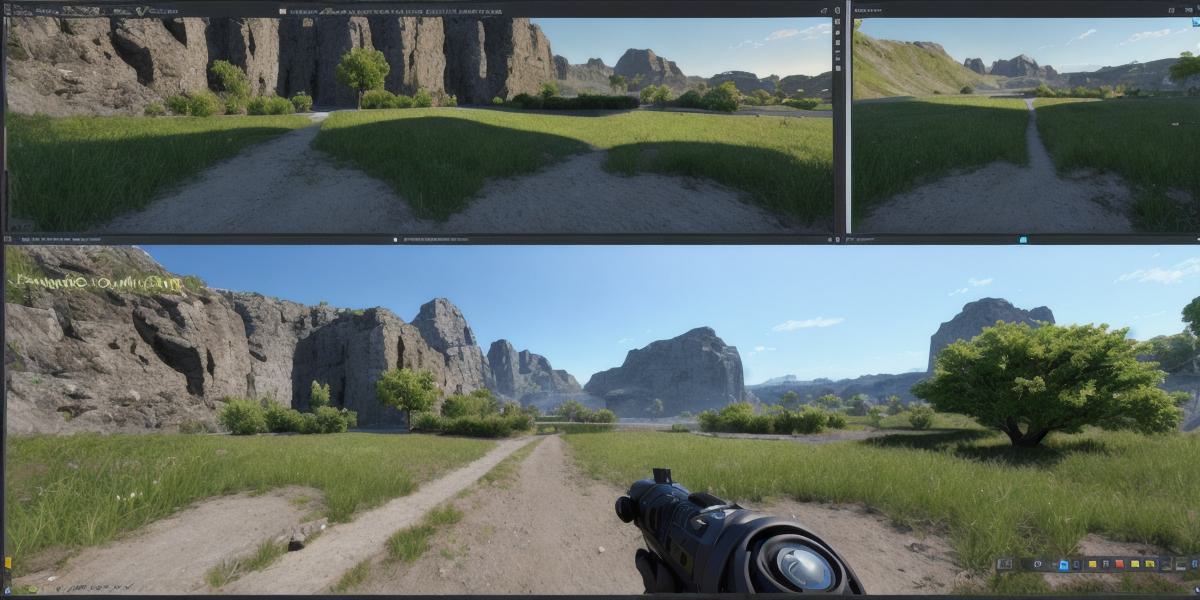Unity vs. Unreal Engine: Which One is Right for C++ Developers?

As a C++ developer, you have two main options when it comes to building games and applications: Unity and Unreal Engine. Both are powerful tools with their own unique features and strengths. In this article, we’ll explore the key differences between these two engines and help you determine which one is right for your needs.
Unity vs. Unreal Engine: A Quick Overview
Unity is a cross-platform game engine that supports both 2D and 3D development. It was first released in 2008 and has since become one of the most popular engines on the market. Unity is known for its ease of use, simplicity, and large community support. It also offers a wide range of assets, tools, and features that make it easy to create complex games and applications quickly.
Unreal Engine, on the other hand, was first released in 1998 and has since become one of the most powerful game engines on the market. It is known for its high-performance graphics capabilities, advanced physics simulation, and support for virtual reality (VR) development. Unreal Engine also offers a large ecosystem of tools and features that make it easy to create professional-quality games and applications.
Key Differences Between Unity and Unreal Engine
- Performance: Unreal Engine is generally considered to be more performant than Unity, especially when it comes to complex graphics and physics simulations. This is because Unreal Engine was designed specifically for these tasks, while Unity was initially designed for 2D development. However, Unity has made significant improvements in recent years and now offers comparable performance in many areas.
- Graphics Capabilities: Both engines offer advanced graphics capabilities, but Unreal Engine is generally considered to be the gold standard when it comes to high-performance graphics. It supports a wide range of lighting effects, post-processing techniques, and particle systems that make it easy to create stunning visuals. Unity also offers a range of graphics features, but they may not be as advanced or customizable as those found in Unreal Engine.
- Tools and Features: Both engines offer a wide range of tools and features, but Unreal Engine is generally considered to have more advanced and professional-quality features. It includes tools for VR development, motion capture, and animation, as well as support for real-time rendering and physics simulation. Unity also offers these features, but they may not be as polished or advanced as those found in Unreal Engine.
- Community Support: Both engines have large communities of developers and users, but Unity is generally considered to have a larger and more active community. This means there are more resources available for learning and troubleshooting, as well as a wider range of assets and tools that can be used in your projects.
Conclusion
Ultimately, the choice between Unity and Unreal Engine will depend on your specific needs and goals as a developer. If you’re looking for an easy-to-use engine with a large community support and a wide range of assets and tools, Unity is probably the best option. However, if you need advanced graphics capabilities, high-performance physics simulation, and support for VR development, Unreal Engine may be the way to go.
FAQs:
Q: What are some of the key differences between Unity and Unreal Engine?
A: Unity is generally considered to be more beginner-friendly, while Unreal Engine is more advanced and professional-quality. Unreal Engine has better graphics capabilities and support for VR development, but Unity has a larger community and more assets and tools available.
Q: Which engine is better for 2D development?
A: Both engines can be used for 2D development, but Unity was initially designed for this purpose and may be easier to use for beginners.
Q: Is either engine free to use?
A: Yes, both engines offer free versions with limitations on features and functionality. However, you can also purchase a license for each engine that allows for more advanced capabilities and support.








